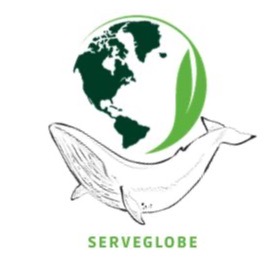Project Augury
We do have plastic substitutes... the natural replica exists!
The term 'Augury' is an ancient latin term that means a sign of what will happen in the future.
With a plastic -free future in mind (Future of the sea: plastic pollution) and in line with our Ethical Donations Acceptance Policy and Grant-making Policy, ServePlanet will partner with other organisations to support the research of creating non-toxic, bio-degradable plastic replica from plants and other natural ingredients with an aim to substitute the plastic currently in use.
Initial research has revealed that this new form of a biodegradable plastic from the juice of certain plants begins to break down after sitting in the soil for a month and when left in water, it breaks down in a matter of days. Plus, it doesn't require crude oil like traditional plastics. There are many plants that have certain chemical characteristics through which polymer could be obtained if it is combined with some other natural substances, thus creating a non-toxic biodegradable plastic. The process is a mixture of compounds whose base is plants. It's totally non-toxic and all the materials that are used in making it could be ingested both by animals or humans and they wouldn't cause any harm.
The material can be made in different colors, shapes, thickness, and strength, by juicing plant leaves and adding a 'non-toxic formula'. At present, the production time to create the plant based-plastic currently takes around 10 days, and the research is pending as to what all plants are the best for creating the product and how to keep the plant alive so it continues to grow more leaves.
ServePlanet will further this research making non-toxic biodegradable plastic replica a reality.
Various articles have also been published to support this research:
https://news.stanford.edu/2016/03/09/low-carbon-bioplastic-030916/
https://bioplasticsnews.com/2018/06/13/bioplastics-cactus/
Impact & Public Benefit
Through this project, ServePlanet hopes the plant-based plastic will help reduce the impact of solid wastes around the world and reduce the use of plastic to a very great extent. Even if plant-based plastic reaches the water bodies, they are completely non-toxic and bio-degradable and their consumption by the marine life will not impact the ecosystem thereby reducing marine pollution and ultimately will benefit the humans in various forms.

